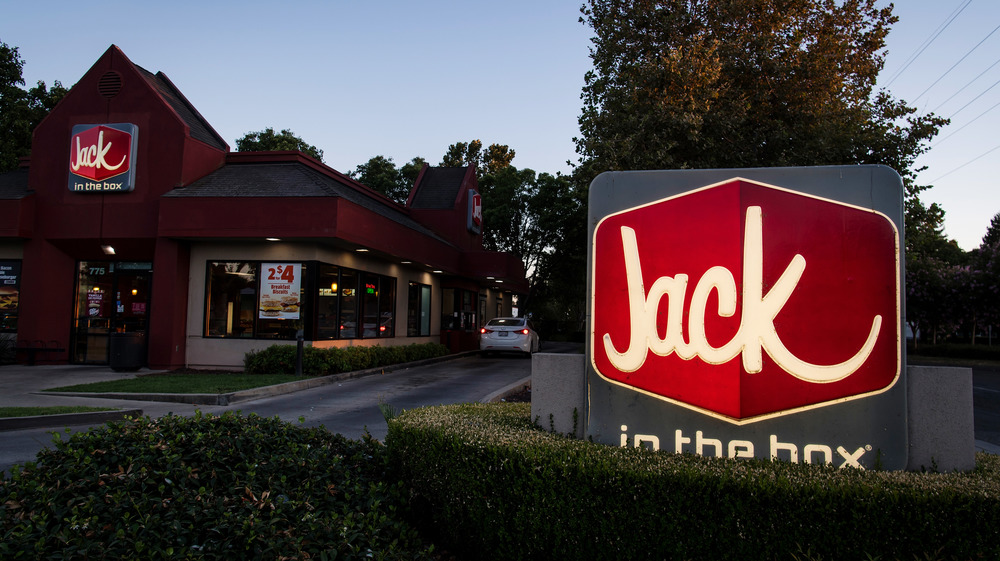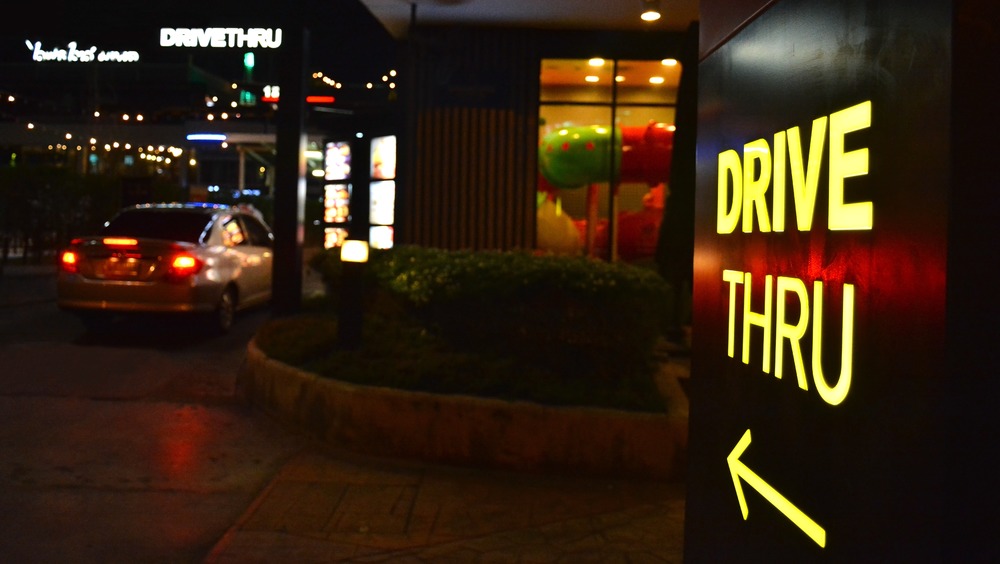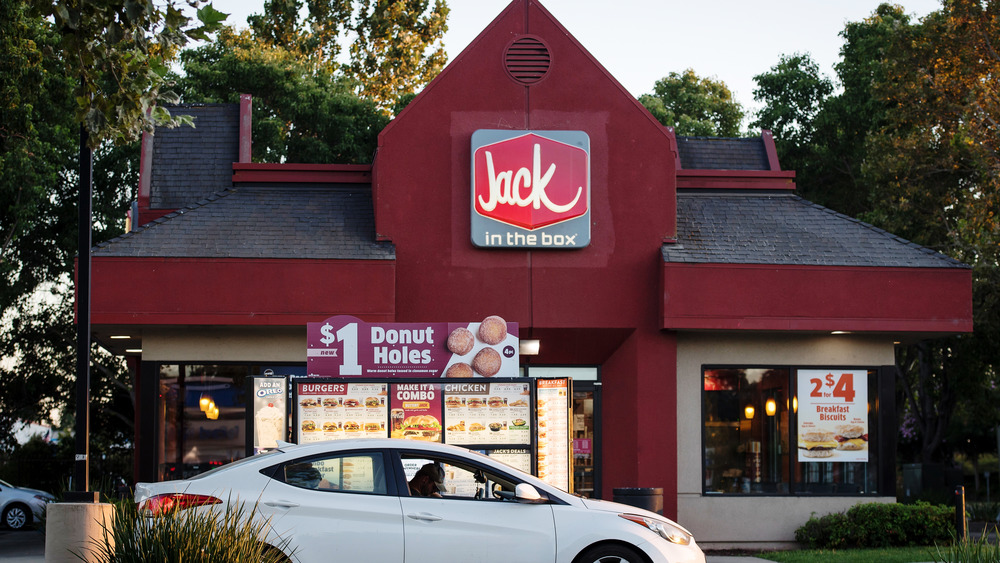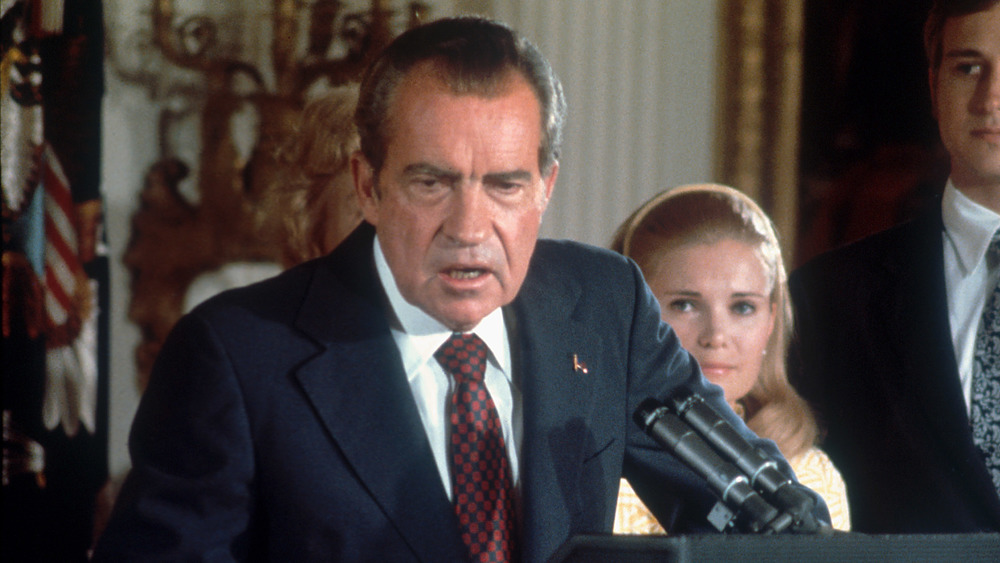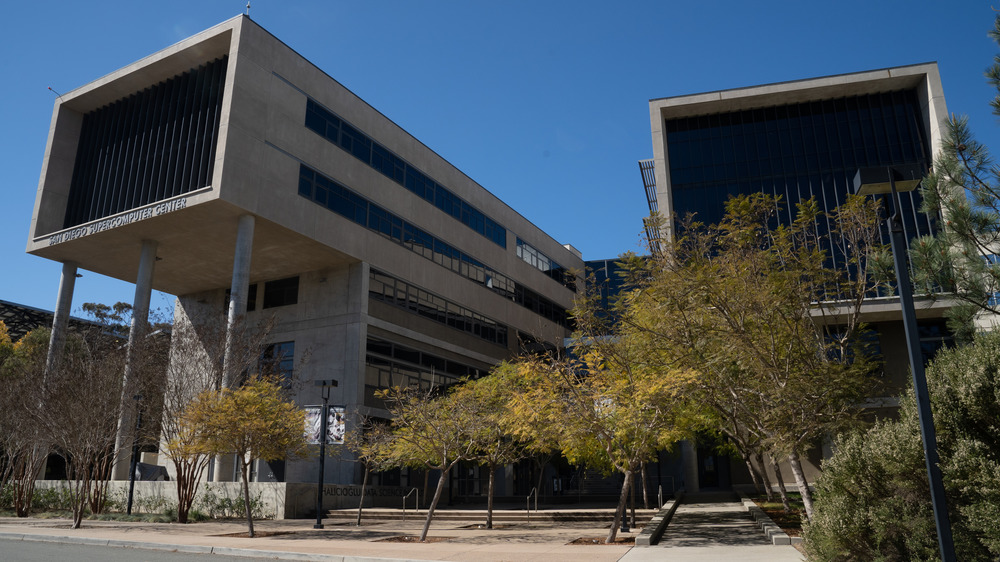What You Didn't Know About The Jack In The Box Founder
Robert Oscar Peterson is the man behind the hamburger fast food chain Jack in the Box, the very franchise that has had somewhat creepy commercials with questionable and strange marketing tactics — although to be fair, this was long after the founder left the company. Born to a father who worked as a milk and ice cream salesman, Peterson initially followed in his dad's footsteps, peddling milkshake machines (via Los Angeles Times).
He opened his first restaurant, Topsy's, in his hometown of San Diego in 1941. When World War II began, he served in the naval intelligence department as a lieutenant. Upon his return, he changed the name of his car-hop style restaurant, where patrons didn't have to leave the comfort of their cars, to Oscar's. In 1951, he launched the first Jack in the Box, a drive-through restaurant on El Cajon Boulevard and 63rd Street in San Diego (via San Diego history).
Peterson was a pioneer and entrepreneur, who not only created a successful fast food chain, but was also a philanthropist.
Pioneered the intercom drive-through
Although the drive-through idea had existed for a while before Robert Peterson decided to implement it at his first Jack in the Box restaurant, it was the way he fused a two-way speaker with the drive-through model that made him a pioneer (The Daily Meal). By combining the intercom system with the drive-through concept, it allowed customers to order their food before driving up to the pick-up window. This helped reduce wait times, and also helped increase orders because more people could order via their car while they waited in line to reach receive their food (The Daily Meal).
Not only was this two-way speaker a novelty — it seemed to be advanced technology, to be able to speak through the intercom and receive a reply back — Peterson hid the speaker inside a colorful, plastic clown (The Daily Meal). The intercom drive-thru may seem simple or irrelevant with our modern-day smartphones and apps, but this bright idea has been an important and revolutionary part of fast-food chain history (via Los Angeles Times).
Peterson sold Jack in the Box in the '60s
Peterson's restaurants, known as Oscar's, were converted into Jack in the Boxes (via Los Angeles Times). By 1967, with around 300 Jack in the Box locations in California and throughout the Southwest (The Daily Meal), Peterson decided to leave the hamburger business and sold the company to Ralston-Purina in order to devote his time to pursuing other interests and business opportunities.
Although he rarely gave interviews, in 1982 he spoke with the Los Angeles Times. He summed up his ambitions, goals and perspective on life, "I don't ever want to be bored and don't think I ever can be. There's too much in this world and so damn little time to know it."
According to the Jack in the Box website, "We're now one of the nation's top fast-food burger chains with over 2,200 quick-serve restaurants in the U.S. and Guam. And with roughly 90% of our 500 million annual guests choosing drive-thru or take out, we know the importance of convenience." So although the founder exited the company long ago, his pioneering idea lives on.
He had many businesses, including the hotel business
Peterson was well-known for being a tough negotiator and strategic entrepreneur. After he sold off his hamburger franchise, he began buying and renovating hotels. He even remodeled the Mendocino Hotel in Mendocino, California with vistas of the Pacific ocean (via Los Angeles Times). The famous fabric designer Jack Lenor Larsen said, "He loved making deals. I think that's what kept him going when he got so sick."
According to the The Daily Mail, he was also involved in the banking business, including the Southern California First National Bank Corp., that later became part of the Union Bank conglomerate. Peterson was a man with many interests and talents, who didn't seek approval from anyone, especially when it came to his ideas. An attorney and good friend, Robert Ballantyne, said of him, "When he had an idea, he didn't waste a lot of time discussing it. He just went ahead and did it" (via Los Angeles Times).
On President Nixon's enemies list
Peterson was a registered Republican and well-known conservative. It may come as a surprise, seem ironic, or appear implausible that he would end up on an enemy list created and compiled by the Administration of President Richard Nixon, a hard-core Republican (via Thrillist). Despite being a Republican himself, Peterson supported several Democratic candidates, including the presidential campaign of Edward M. Kennedy, and helped with fund-raising (via Los Angeles Times). He also supported other Democratic party candidates, including George S. McGovern, Alan Cranston, and Frank Church, among others, with financial donations.
In an interview with The Times in 1982, Peterson said, "The Establishment hates me because they don't like the boat rocked." Peterson was known for always seeking change, doing things his way, and not caring what other people thought (via Los Angeles Times). There are some who would say he didn't always do things in the most polite or tactful manner, either.
He was a philanthropist
Peterson was a fan of art and contributed financially to a variety of organizations. In fact, he created a group to specifically fund-raise for the arts, connecting both private and public donors to help theaters, museums and even individual artists (via Los Angeles Times). But he was a man who liked neither the limelight nor being on the receiving end of too much public attention. Nevertheless, for all his contributions to the arts, he received the City of Paris medal of Honor.
He also donated very generously to the University of California, San Diego, also known as UC San Diego. Peterson Hall is named after him at UC San Diego for his various contributions, including gifts of impressionist paintings, funding for the Scripps Institution of Oceanography, and the School of Medicine. According to UC San Diego, "Peterson was instrumental in establishing the UC San Diego Foundation," which works to create community support through scientific, educational, and public service programs.
Peterson died in 1994, at the age of 78, after fighting leukemia for more than 10 years.
